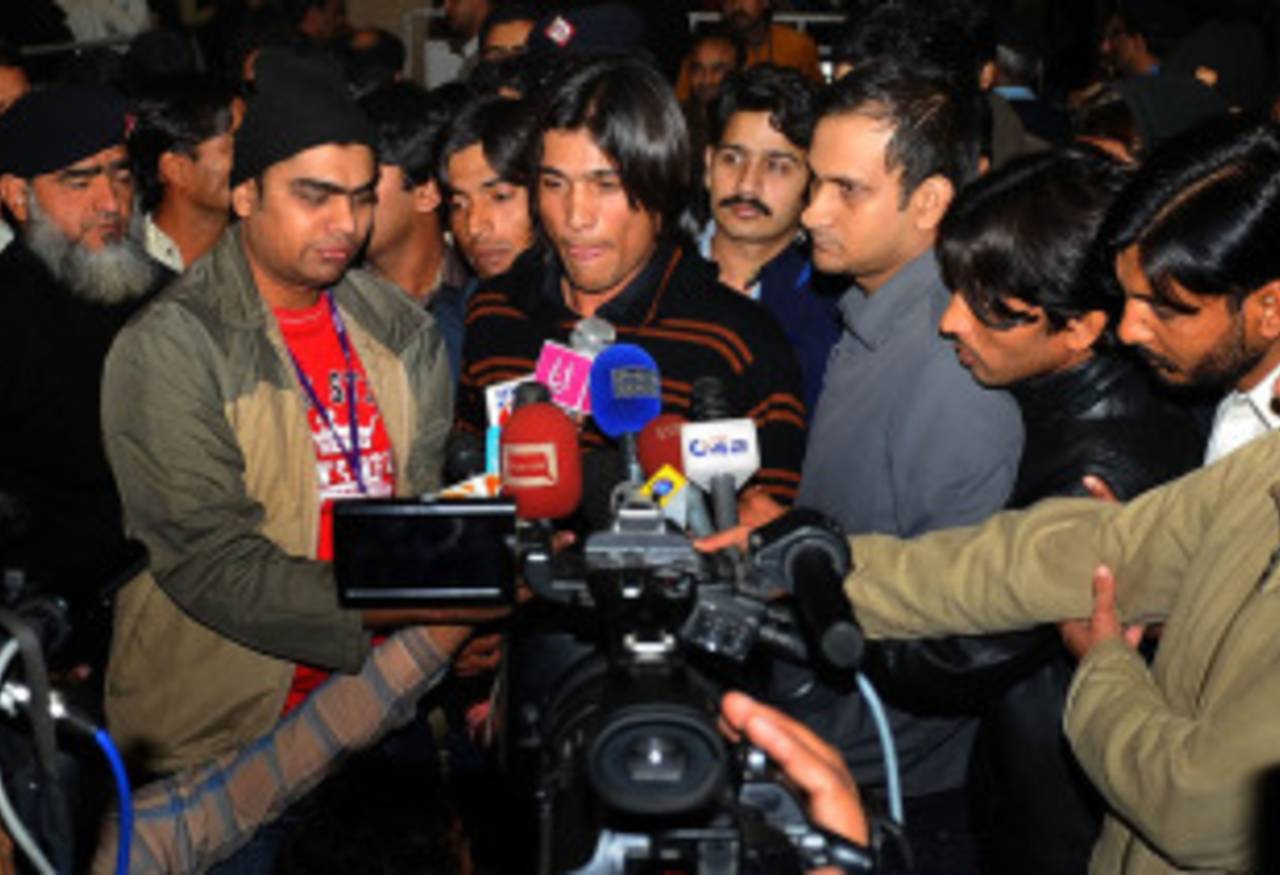At the heart of the pain that the spot-fixing revelation, and now
judgement, has spawned is the assumption that we make about the moral fibre of sportspeople. As a purely financial matter, what the Pakistani players have been found guilty of wouldn't even be classified as a misdemeanour: maybe a father casting a stern look at a son; no more. Every cricketing country will have thrown up crimes of greater financial magnitude than this in the last 12 months, and India is particularly culpable. If a politician had done this, it wouldn't even have made it to the news.
But sport tugs at the heart in a way no other public activity can. And it does because sport, in its most pristine, blemishless form, is unscripted. People win and lose, they laugh and they cry, but they strive at all times. It is what makes sport noble. As front pages around the world grow increasingly morose, as even religion spews hatred and division, sport is meant to tell us what life should be like. It makes us park our faith at its altar. That is why what Salman Butt, Mohammad Amir and Mohammad Asif have done evokes sadness and disillusionment in far greater measure than the financial implications of their act.
But sportsmen come from the same society as everyone else. Among sportsmen are the noble, the diligent and the caring, as there are the callous, the cheats and the criminals. As an actor is good at delivering lines, a painter at creating art out of an empty canvas, so too are sportsmen at kicking a ball or finely timing it through cover. We must expect no more. Indeed, I go through bouts of disillusionment myself. In football, players seem to cheat every minute, in cricket they try to hoodwink an umpire into giving a batsman out, in athletics they stuff themselves with performance enhancers.
In fairness, though, sportsmen attain fame far earlier than people do in almost any other profession. Raw youth is thrust onto a public stage and expected to be mature and discerning. Often, therefore, they get shaped by the air they breathe in their vicinity. It is an underestimated factor. One of the reasons you study at great institutions or aspire to work in great corporations is that you hope to acquire the values they stand for.
While deterrence is a likely outcome of the sentencing, there is also the possibility of greater cynicism; of people believing that an unusual moment in a game is not the result of ingenuity and skill but merely an act in a script
And so Pakistan cricket must ask itself what kind of air the youngsters in the team were breathing. Amir could not have been born corrupt, nor for that matter Butt. There must have been something in the environment that told them it was okay to do what they did. People often talk about the invincibility that power lulls you into believing in; on the subcontinent, young cricketers start believing that the adulation bestowed upon them will allow them to get away with anything. This is therefore as much the fault of Butt, Amir and Asif as it is of those who created the environment in which it was deemed acceptable to do the things these players did.
Hopefully this will be a deterrent, but the onus on creating that environment lies with those who administer cricket. You cannot have oddballs running cricket. Lung cancer is a deterrent but it doesn't seem to stop people, otherwise perfectly discerning, from smoking. The Madoffs do get caught and jailed for a lifetime but every day there is another Ponzi scheme being plotted and another sucker drawn in.
Administrations will have to be particularly diligent. In fact, a solid man at the head of the PCB could actually use this to turn Pakistan cricket around. I do not know enough about the structure there to know whether this is a possibility or just a silly statement, but I do know that the world can do with Pakistan cricket being strong and honest.
And so while deterrence is a likely outcome of the sentencing, there is also the possibility of greater cynicism; of people believing that an unusual moment in a game is not the result of ingenuity and skill but merely an act in a script. That is why we need strong administration.
In the past Australia, England and the West Indies have shown little inclination to investigate within, and there is a feeling in the game that Sri Lanka could have done more. India took some action but not through a judicial process. It would be fair to say that in our part of the world the current revelations would have been suffocated by bureaucratic and legal red tape. To that extent, cricket owes the English legal system a big thank you.
The easy way out is to attack the ICC. It is not much good doing that because the ICC doesn't have the power to send people to jail or to launch a sting of the kind the News of the World did. And they cannot take action until they have irrefutable evidence either. Like us they see games where something seems amiss, but that is not much to go by. However tame it might seem, education, and stringent punishment in the face of evidence, is about as far as they can go.
And I think it is important, too, to remember that there are people who have said no to dubious money. It is a star that those with character can wear proudly. Hopefully that list will always be bigger than that in the Hall of Shame.
Harsha Bhogle is a commentator, television presenter and writer. His Twitter feed is here
